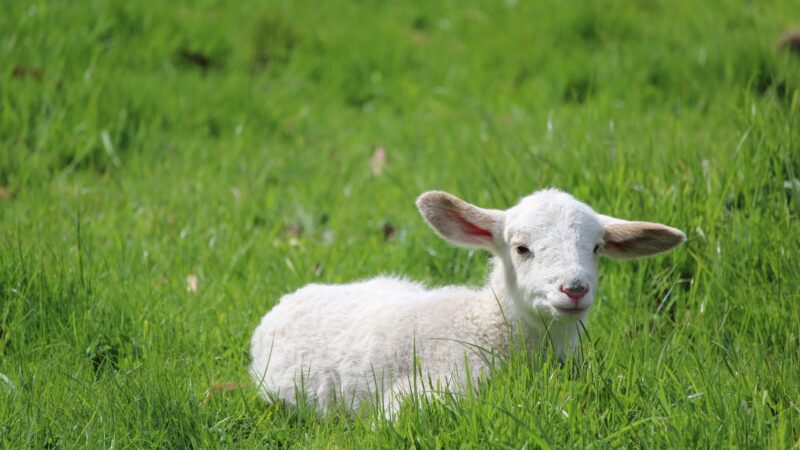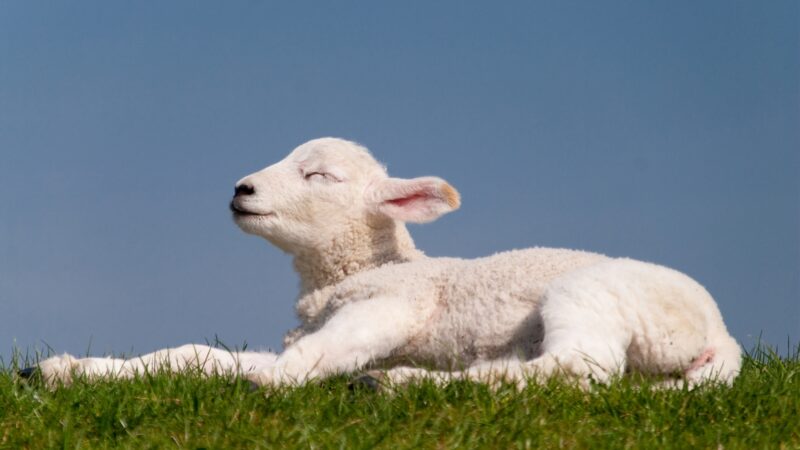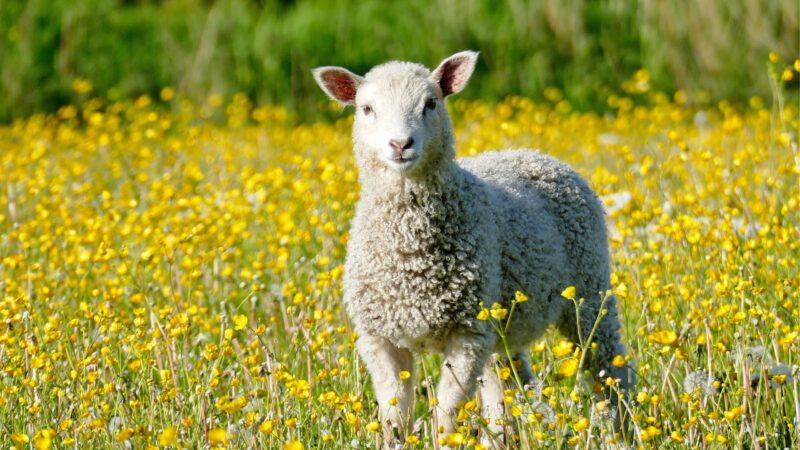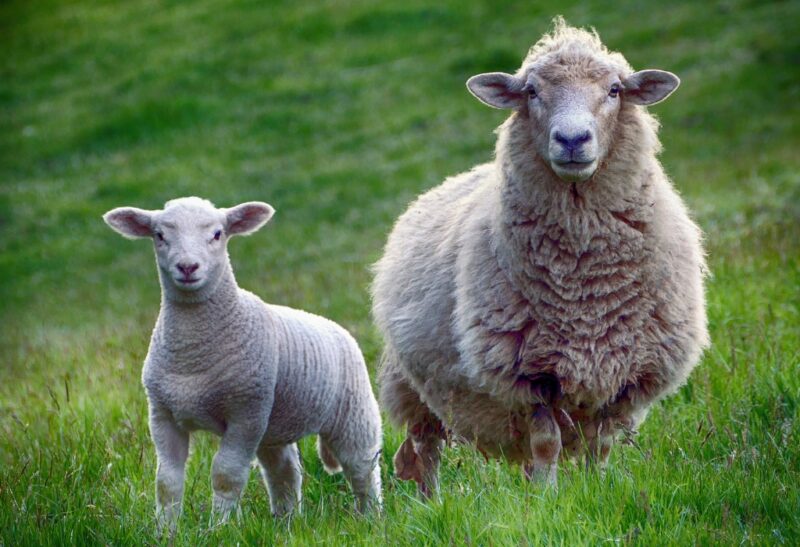People tend to eat lamb rather than sheep due to the tenderness and mild flavor of lamb meat compared to the tougher, more robust flavor of sheep, or mutton. Lambs are usually slaughtered at a younger age than sheep, resulting in a more tender meat product.
Curious about why lamb is more popular than sheep on the dinner table? Keep reading to learn more about the differences between lamb and sheep, the various terms used for their meat, and how these factors impact culinary preferences.
Table of Contents
What Is the Difference Between Lamb and Sheep?
Lamb refers to a young sheep, typically under one year of age. Sheep, on the other hand, are older animals, usually between one and three years old. The age difference between lamb and sheep is the primary factor that affects the taste, tenderness, and cooking characteristics of their meat.
What Is Lamb Meat Called?

Lamb meat is simply called “lamb.” It is known for its tender texture and mild flavor, making it a popular choice in many cuisines around the world.
What Is Sheep Meat Called?
Sheep meat, specifically from older sheep, is referred to as “mutton.” Mutton has a stronger, more robust flavor and a tougher texture compared to lamb due to the sheep’s age at the time of slaughter.
Why Do People Eat Lamb and Not Sheep?

The primary reason people prefer lamb over sheep is the tenderness and flavor of the meat. Lamb meat is generally more tender and has a milder flavor due to the young age of the animal. On the other hand, mutton, or sheep meat, is tougher and has a more pronounced taste that may not be as appealing to some people.
Is Eating Lamb Healthy for You?

Lamb can be a healthy choice as it is an excellent source of protein, vitamins, and minerals. However, it is essential to consume lamb in moderation, as it can be high in saturated fats.
Why Is Mutton So Expensive?
Mutton tends to be more expensive than lamb because it is less popular, resulting in less demand and higher prices. Additionally, raising a sheep to an older age before slaughter requires more resources, such as time, feed, and care, which can increase production costs.
Which Is Better: Mutton or Lamb?
The choice between mutton and lamb largely comes down to personal preference. If you enjoy tender, mild-flavored meat, then lamb is the better choice. However, if you prefer a more robust flavor and don’t mind a tougher texture, then mutton may be more suitable for you.
Frequently Asked Questions
Which Is Tastier: Goat Meat or Sheep Meat?
Taste preferences vary, but goat meat is often described as having a mild flavor similar to lamb, while sheep meat has a more robust taste.
Does Mutton Taste Good?
Mutton can taste good if properly prepared and cooked, but its stronger flavor may not appeal to everyone.
What Country Eats the Most Lamb?
Australia and New Zealand are known for their high consumption of lamb, with lamb being a popular staple in their diets.
What Does Lamb Meat Taste Like?
Lamb meat has a tender texture and a mild, slightly sweet flavor.
Is a Lamb a Goat?
A lamb is a young sheep, not a goat. While both animals belong to the same family (Bovidae), they are distinct species.
Which Is Healthier: Goat or Lamb?
Both goat and lamb can be part of a healthy diet, but goat meat is generally leaner and has less saturated fat than lamb.
Is Goat Meat Tougher Than Lamb?
Goat meat can be tougher than lamb, depending on the age of the animal and how it is prepared. However, when cooked properly, goat meat can be tender and delicious.
Can a Sheep Impregnate a Goat?
Although sheep and goats belong to the same family, they are distinct species, and natural crossbreeding between the two is rare and usually unsuccessful. However, some artificial hybridization attempts have produced viable offspring known as “geep” or “shoat.”
What Is Mutton Called in the USA?
In the United States, mutton refers to meat from older sheep, as it does in most other English-speaking countries. The term “mutton” is less commonly used in the US, with many people simply referring to all sheep meat as “lamb” regardless of the animal’s age.
List of Sources
Anderson, T., Conery, K., Simckes, M. (2022). Lamb. Colorado State University.
Mathis, C. P., Ross, T. (2005). Sheep Production and Management. New Mexico State University.
Sheep, Lamb & Mutton. (2022). U.S. Department of Agriculture.
